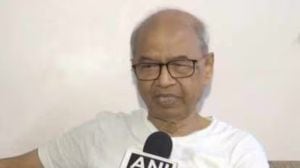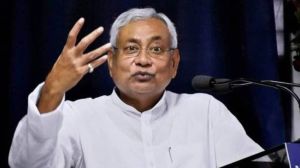Death wish rules a Red village in Kerala, comrades watch
KOZHIKODE, AUGUST 27: Kerala has a high rates of suicides but a small Kozhikode village still stands out. At least 32 men and women had ki...

KOZHIKODE, AUGUST 27: Kerala has a high rates of suicides but a small Kozhikode village still stands out. At least 32 men and women had killed themselves in Pachapalam, a village of a little over over 2000 people, in recent months.
Many more had tried and failed. “There are several on the brink of it,” says Chandran, headmaster of the only lower primary school in this settlers’ village, perched on Kozhikode’s northern hill ranges in Vanimel panchayat.
The headmaster, as patron of the village’s only club, had got locals to do a house-to-house survey, when suicides appeared to spiral. They logged 32 such deaths, mostly by hanging, within the last one year and a half. Many were never even reported to the police.
“About 60 per cent of these were debt-related, another 25 per cent did it out of alcohol-related problems, 10 per cent had some mental ailment and 5 per cent killed themselves for unknown reasons. Only a quarter of them were women,” the headmaster explained.
Pachapalam got its first settlers 30 years ago, and most are from the neighbouring Kallachi-Kuttiadi-Nadapuram belt. They comprise labourers, petty shopkeepers and small farmers. It is a typical CPM-controlled village, where no leaf turns without The Party’s approval.
The villagers reel under the worst of their traditions. Like Panam payattu. You collect small loans from many individuals at a time, and pay back double the borrowed amount to those who paid you when they hold their own Payattus later. They will pay you double of that when you hold your next Payattu. This goes on, and on.
Little of this money is invested, and is mostly spent on deaths, births and marriages. The village has no industry, no business. But since non-payment involves gross public humiliation, many villagers court death, when dues mount.
But even a death in the family — suicides included — can make you a pauper. The dead one’s family must host a seven-day grieving by hundreds: Even if it must beg and borrow to feed the mourners.
Suicides have a surreal dimension too. The entire village grinds to a halt and flocks to the house. The dead draws much adulation, and more attention than he may have got when alive. “This has not helped things,” rues Ashokan, who runs the village ration shop.
Marriages too cripple them, but not on account of dowry. A marriage cannot be, without inviting and feeding nearly half the village. “One marriage, and you end up deep in debt here,” Ashokan said.
There were about a couple of dozen loansharks and informal chit fund-operators in the village till recently. Many villagers had killed themselves unable to pay up, or when their life savings vanished along with the chit-fund operators. Several hit the bottle when debts spun out of control. Some eventually kill themselves.
Thyvecha Kalliyil Gopalan is one of the survivors. He was the village rice-pounder till a mechanised flour mill came up in the next village and made him redundant. He tried to hang himself, but the rope broke. He then cut the veins on his wrist, but his neighbour rushed him to hospital. “I thought why live on? What for ?” he says.
Interestingly, few suicides here figure in official records. The families don’t want the dead to be cut up on a post-mortem table, and the villagers support this.
The nearest police station, in Nadapuram, is 12 kms away. “If you report suicide, the body must be taken all the way to Vatakara 25 km away, or to Kozhikode 70 Km farther. So we get together and cremate,” a village elder explained.
In this Red village, the desperate have not even the usual prop of religion or the safety valve of rituals and belief. It has not a single place of worship. “We used to have a lot of superstitions like Theyyam, Perikkalam and Komarams once, and people believed in them. But we campaigned and had them stopped,” says a proud Kanaran, one of the earliest settlers and a veteran CPM worker.
But apprehensions remain. An indicator was the huge village crowd — mostly Hindus — that heard out Father Dominic Thunkuzhi of Valayam church, who the worried village club fetched to conduct an anti-suicide class last week.
“It’s alarming. They need support. Politics cannot substitute everything,” asserts Father Thomas Chakkittamuri of the Manjakunnu Alphonsa Church. He will hold suicide prevention classes there next week.
But a section of locals are also busy downplaying the issue, fearing the bad name it will bring to their village. And more importantly, The Party.





- 01
- 02
- 03
- 04
- 05


























